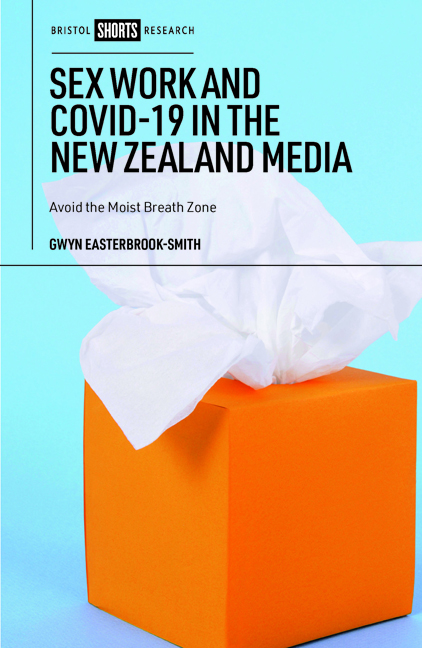Two - Sex Work and COVID-19 in 2020
Published online by Cambridge University Press: 18 January 2024
Summary
Media coverage of sex work historically has been uneven and has often reproduced stigmatising narratives – even when a particular text hopes to dismantle them, they are often invoked once again as a foil to play against. In this chapter and the next, I am interested in examining how New Zealand's model of decriminalisation was perceived to function under stress. Some New Zealand media conveys a sense of pride at its progressive legislation through references to being one of only a few places to have enacted decriminalisation. Local sex work activist Catherine Healy has been granted a Damehood, which, in her words, ‘shows the acceptance of this industry’ and its conditional incorporation into more traditional institutions. The baseline from which discourses are operating might therefore be different to that at play internationally. Here, I consider which discourses were most prominent during the first year of the pandemic: where and how do they link to existing narratives, and where do they diverge?
New Zealand's response to the COVID-19 pandemic began with enacting border restrictions on 2 February 2020: foreign travellers who had travelled from or through mainland China would be denied entry; and citizens and permanent residents could enter but had to self-isolate for 14 days on arrival. Later in February, in a speech to the Auckland Chamber of Commerce, Finance Minister Grant Robertson opened with remarks about the government's preparation for the potential arrival of the virus. The public health response that had been mobilised included stockpiles of masks, testing facilities that could provide same-day results located in three of New Zealand's largest cities, a dedicated information line, and public health staff stationed at airports. Robertson acknowledged the immediate impacts of the restrictions already in place on the country's tourism industry, which was affected by a loss of visitors from China. The following day, 28 February, New Zealand confirmed its first case of COVID-19. Further travel restrictions followed, on arrivals from Iran, South Korea and Italy. Border restrictions tightened: on 14 March it was announced that international travellers (aside from those arriving from the Pacific Islands) would have to isolate for 14 days, and on 19 March the border was closed to foreign travellers, with only citizens and permanent residents permitted entry.
- Type
- Chapter
- Information
- Sex Work and COVID-19 in the New Zealand MediaAvoid the Moist Breath Zone, pp. 30 - 58Publisher: Bristol University PressPrint publication year: 2023



